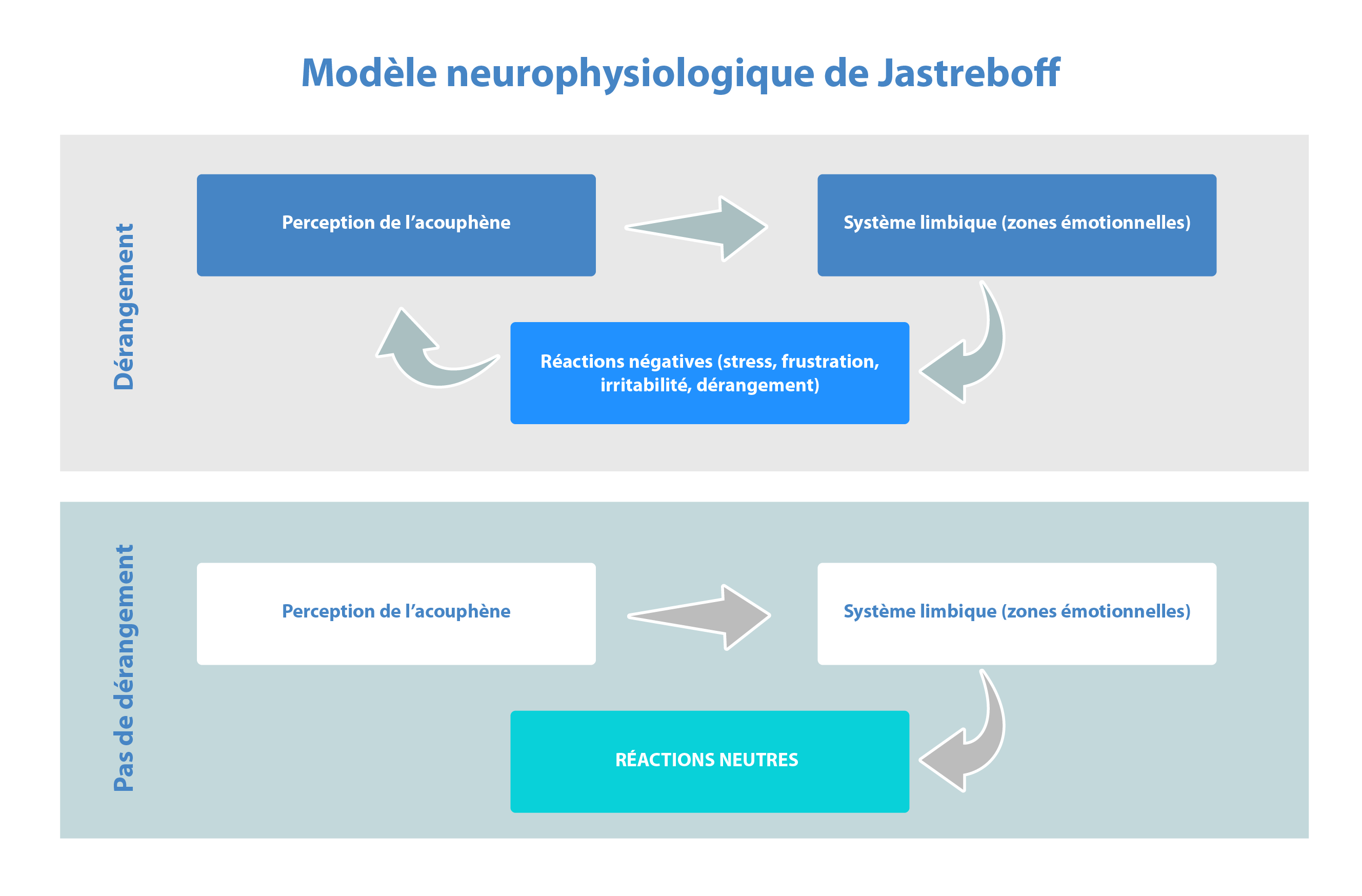Stress and tinnitus: A link?
Écrit par Francis L’Africain,
Audiologiste

Vous vous sentez stressé à cause de votre acouphène ? Vous sentez que cela a un impact important sur votre vie quotidienne ? Vous vous demandez s’il existe un lien entre le stress et l’acouphène ?
La façon dont chacun réagit face à son acouphène est très variable : elle dépend des connexions existantes entre les zones auditives et les zones du cerveau impliquées dans les réactions émotionnelles. Le modèle neurophysiologique de Jastreboff suppose un lien entre la perception d’un acouphène, les réactions émotionnelles et le dérangement que provoque l’acouphène.

The way people react to tinnitus is very variable: it is related to the connections between the auditory and emotional areas of the brain. The neurophysiological model of Jastreboff (A) assumes a link between the perception of tinnitus, emotional reactions and the disturbance caused by tinnitus.
For some people, tinnitus doesn’t result in negative emotions. It is therefore ignored, just as one ignores the sound of ventilation. Tinnitus is constantly heard, but it does not prevent one from going about one’s business.
However, for others, the sound of tinnitus is perceived as very bothersome, stressful, even frustrating. This can have a very negative impact on physical and psychological well-being. Often, people who are troubled by tinnitus will develop a vicious circle; their tinnitus causes them stress, and in return, that stress intensifies the perception of their tinnitus. Also, the chronic stress (B) caused by tinnitus can eventually lead to depression.
What to do if I feel stressed by my tinnitus?
Do not hesitate to contact one of our ODYO team professionals if you have any questions about this subject!

 1.800.909.ODYO
1.800.909.ODYO support@odyo.ca
support@odyo.ca Online
Online  Shop
Shop  Blog
Blog 







